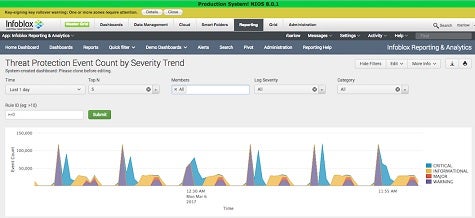Now that the Domain Name Servers (DNS) on which internet applications depend to respond to end-user requests for data have been shown to be vulnerable to brute-force attacks, many organizations are looking to embed some additional resiliency into their IT operations. One way to go about accomplishing that goal is to make it simpler to redirect requests to another DNS server when the primary DNS server can’t keep up with a massive spike in requests that have become a core element of most distributed denial of service (DDoS) attacks.
To make it simpler for IT organizations to accomplish that goal, Infoblox is now making available an instance of a DNS server that runs on top of a virtual appliance that can be spun up anywhere as needed.
In addition to providing IT organizations with more flexibility, Prakash Nagpal, vice president of product marketing for Infoblox, says being able to deploy DNS as a virtual appliance makes it a lot simpler for IT organizations to employ DNS at scale.
“You can now deploy DNS at scale anywhere,” says Nagpal.
Nagpal says that is important for IT organizations because in the event of a DDoS attack aimed at one instance of DNS, legitimate requests for data can be rerouted to another DNS instance. Given that a virtual instance of DNS is now a virtual appliance, Nagpal notes that rather than paying to acquire a physical appliance, IT organizations can now make use of a software subscription licensing model to scale their DNS usage up and down as needed.
No one can stop cybercriminals from hijacking devices across the internet to launch a DDoS attack. But there are certainly measures that IT organizations can put in place to make those attacks far less crippling. In fact, when it comes to DDoS attacks, the ability to employ virtual appliances means many of those IT organizations for the first time will have a real fighting chance to make use of the resiliency of the internet itself to mount an effective defense.



